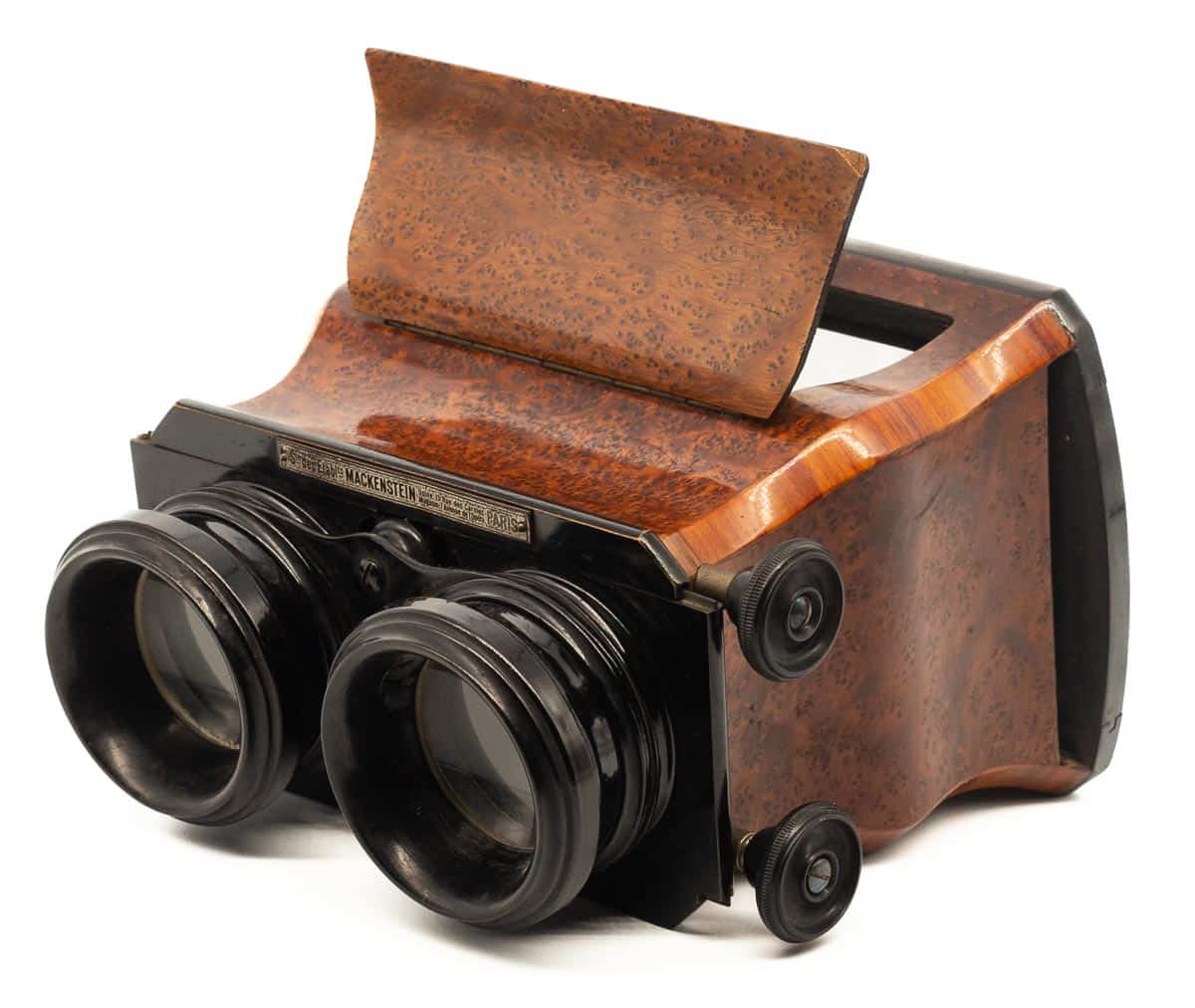
Le Stéréoscope à doucine is a deluxe hand-held stereoscope with a burr walnut finish. Striking are the two large lenses with a diameter of 48 mm. The lenses look appealing, but cause reflections and cannot be entirely covered by the eyes. The viewer has no eyepiece blinders to block incident light.
The stereoscope has the nameplate of the renowned camera manufacturer Mackenstein from Paris. Although Mackenstein designed and manufactured its own stereoscopes, the company also sold Mackenstein-branded stereoscopes that were manufactured by Mattey. This is a good example of Mattey as a supplier to other manufacturers and sellers.
Specifications
| Manufacturer: | Mattey |
| Year of introduction: | c. 1900 |
| Year of manufacture: | c. 1910 |
| Type: | Hand-held |
| Viewer: | Single-view |
| Serial number: | None |
| Stereoview support: | Glass and Paper |
| Stereoview format: | 8.5 x 17 cm |
| Lens focussing: | Yes |
| Inter-ocular adjustment: | Yes |
| Eyepiece blinders: | No |
| Dimensions (L x W x H): | 18.5 x 15.5 x 11.5 cm |
| Construction: | Burr walnut |
| Other features: | Plate on front panel with Établissements Mackenstein – Usine: 15 Rue des Carmes, Magasin: Avenue de l’Opéra. |
Glossary: hand-held / inter-ocular adjustment / single-view
Hermann Mackenstein
Hermann Josef Hubert Mackenstein (1846–1924) was born in Doveren, Westphalia (present-day Germany). He learned the trade of carpentry and left for Paris in 1867 to improve his skills. He started manufacturing cameras at the end of the 1870s. His company moved to 15, Rue des Carmes around 1900, and a store was opened in 1902 at 7, Avenue de l’Opéra. Mackenstein’s company became a leading manufacturer of cameras in Paris. Mackenstein manufactured conventional cameras, stereo cameras and stereoscopes. In 1914, the international situation deteriorated, leading to the outbreak of the First World War. Mackenstein was forced to fled to the neutral Netherlands in 1915. He returned to Paris after the war, where he died in 1924. His company was continued by two of his employees, Henri Suffize and Léon Molitor.
The complete story of Mackenstein
